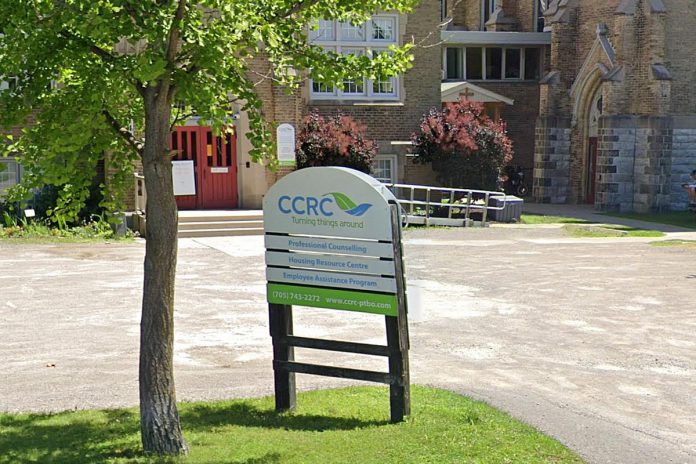
There’s a new resource in Peterborough intended to help keep a roof over people’s heads by resolving conflicts and improving relationships between tenants, neighbours, and landlords in the city.
During a time when access to affordable and suitable housing is becoming increasingly difficult, Annie Hedden, manager of the housing resource centre at CCRC, hopes the housing mediation program helps provide some solutions for Peterborough residents.
CCRC is partnering with the John Howard Society of Peterborough to offer the housing mediation services to Peterborough residents, according to a media release. Housing mediation is aimed at helping tenants resolve issues and challenges that can be uncomfortable, cause stress, and even lead to people losing their rental units.
“The hope for the impact of the housing mediation program is to facilitate opportunities for discussion and collaboration between landlords and tenants, between roommates, and between neighbours to resolve conflict, disputes or disagreements,” Hedden told kawarthaNOW.
“The aim is to prevent these types of interpersonal conflicts from eventually leading to housing loss. We know that interpersonal conflict is a major contributing factor influencing people to leave their homes, and that sometimes small resolvable issues can lead to loss of housing and homelessness.”
Aspects of the housing mediation program include short-term services, like conflict coaching or assistance to instigate a difficult conversation, often in one or two sessions. Residents can also access more intensive services, such as more formal mediations between the affected parties.
“Participation in the program is always voluntary and the level and length of service depends on the needs and wants of the people involved,” Hedden noted.
When asked about when residents should consider connecting with the resources through the housing mediation program, Hedden said, “people should reach out for help anytime they are having a difficult time communicating with a landlord, roommate, or neighbour.”
In addition, landlords can reach out if they are having difficulty communicating with a tenant.
Hedden said the issues range from something as simple as a disagreement over washing dishes to something more complex, like resolving a landlord and tenant issue that would otherwise be heard by the Landlord and Tenant Board (LTB).
That could include a neighbour disturbing the peace in a rental complex, for instance, or an eviction.
“One of the major benefits of our program is that it’s more accessible and faster than applying to the LTB, and co-developed solutions tend to be more enduring and longer lasting than decisions handed down from an external authority,” Hedden explained. “Housing mediation prevents housing loss and homelessness. In a time of housing crisis, it is more important than ever to keep people housed.”
Hedden said it’s “extremely difficult” to find housing in the current rental market. Rents are very high and the vacancy rate is very low. People who do manage to find new housing tend to find units that are more expensive than their previous units, and that are less adequate to meet their needs.
“Housing mediation can prevent the physical, emotional, and financial costs of moving and the upheaval of leaving your home to find a new one,” shed said. “For folks who have recently left their housing due to disagreements or personality clashes, housing mediation can help uncover the root of the issue, improve relationships within the housing unit, and facilitate a return to housing.”
The program is being offered through a “unique partnership” that brings together the housing resources and supports offered by CCRC’s housing resource centre with the transformative mediation expertise of the John Howard Society of Peterborough.
Tenants can self-refer or be referred by a community organization or partner. For more information or to book an appointment, contact Laura Greenwood at 705-743-2272 ext. 202 or email lgreenwood@ccrc-ptbo.com.
A non-profit charitable organization, CCRC provides both professional counselling and housing resources and is also a partner in the Peterborough Domestic Abuse Network and the Family Services Employee Assistance Program. Prior to 2021, CCRC also provided credit counselling, financial literacy, and debt management services.
The organization that became CCRC was established in 1998 when the Catholic Social Service Bureau and Volunteers and Information Peterborough — established in 1956 and in 1971 by groups of concerned local citizens who saw a need for services — merged to become Family Counselling Services and Volunteers and Information Peterborough. In 2001, the organization was renamed Community Counselling Resource Centre, shortening its name to CCRC in 2016. In 2021, all CCRC services were consolidated at a single location at 540 George St. N. in Peterborough.
For more information on CCRC and its programs, visit www.ccrc-ptbo.com.


























